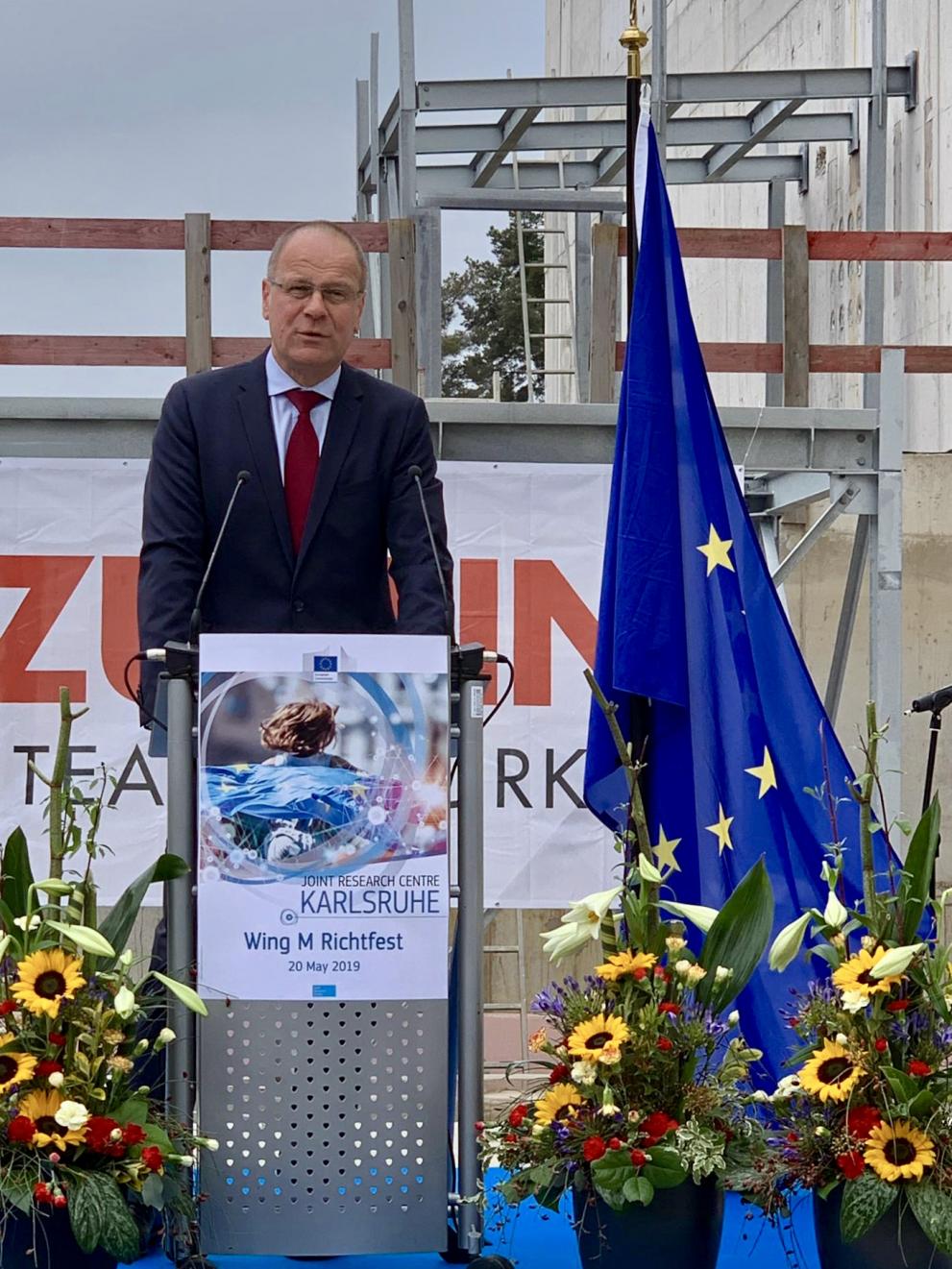
On 20 May 2019, Tibor Navracsics, Commissioner for Education, Culture, Youth and Sport and responsible for the Joint Research Centre (JRC), along with Günther Oettinger, Commissioner for Budget & Human Resources took part in the topping-out ceremony of a new laboratory building at the JRC site in Karlsruhe, Germany.
Commissioner Navracsics said: "In a week when we elect the members of the European Parliament, this building reminds us of how the EU works for the benefit of European citizens. Built in accordance with high nuclear safety and security standards, this new building will boost state-of-the-art nuclear research, helping to increase nuclear safety and security in the EU. This is but one of the many ways in which Member States and the new European Parliament will continue to be able to rely on the scientific work of the Joint Research Centre to help protect, empower and defend Europe’s citizens."
In view of the considerable evolution of radio-protection and security regulations over the last decades, the JRC in Karlsruhe has been renovating and upgrading its infrastructure to improve further the safety and security of its installations and ensure that it remains a state-of-the-art facility.
The construction of the new Laboratory building (Wing M) is taking place within the frame of an overall modernisation, upgrade of the safety and security, environmental performance and rationalisation of the JRC site in Karlsruhe.
JRC role in nuclear research, training and education
For more than 60 years, the JRC has been providing scientific support to the European Commission in order to fulfil obligations set up by the EURATOM Treaty in the areas of nuclear research, training and education.
The JRC Karlsruhe site plays a key role in the making of EU policies on nuclear waste management and the safety of nuclear installations, as well as nuclear safeguards and security.
It provides the expertise and access to the necessary special handling facilities for the study of the actinide elements and radioactive waste treatment and disposal, as well as for the advancement of science in general. Another key role is in the study and production of radionuclides for medical applications, such as the treatment of cancer.
The JRC works closely with national and international bodies in the nuclear field.
In addition to playing a key role in EU policy on nuclear waste management, the safety of nuclear installations and radiation protection, the JRC is also heavily involved in efforts to combat the illicit trafficking of nuclear materials, and in developing and operating advanced detection tools to uncover clandestine nuclear activities.
The EU programme for nuclear safeguards in partnership with the International Atomic Energy Agency (IAEA) is the second largest programme after the US.
The EU has also a responsibility in maintaining the necessary expertise and skills in the nuclear field.
Nuclear science has been identified as a key skill-shortage area in the European Union.
An important part of the JRC's work in the nuclear field, and in particular a range of activities at its Karlsruhe site, is dedicated to education, training, and the transfer of nuclear knowledge and skills to new generations of professionals and academics working in this field.
The JRC has developed a Training Centre for Nuclear Safeguards and Security as well as training programmes for nuclear fuel cycle, decommissioning and waste management, radiation effects in materials and basic science.
These activities are in line with the objectives of the New Skills Agenda, one of the top priority initiatives of the Commission, which aims at promoting skills development, including the mutual recognition of qualifications, and supports vocational training and higher education.
Related Content
Details
- Publication date
- 20 May 2019
